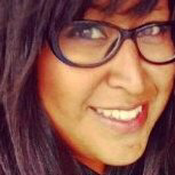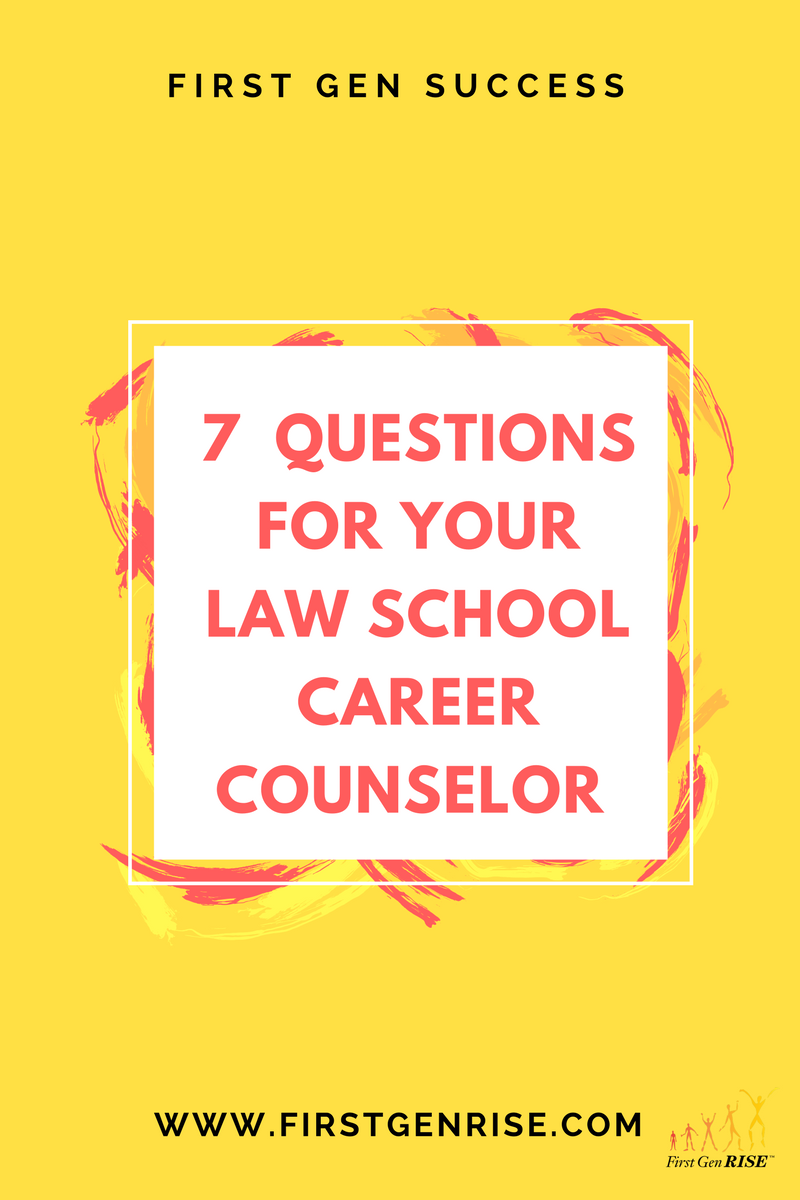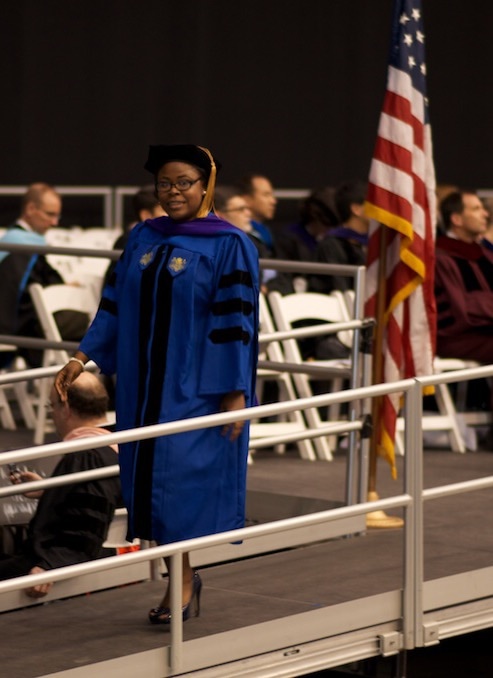|
Dear First Gen -
As a first-generation professional, there is much to learn about "professionalism in the workplace" such as email etiquette, negotiating salaries, performance reviews, networking, sponsorship, mentorship, and similarly critical, encouraging your employer to prioritize diversity and inclusion (D&I) . Here are two approaches to improve D&I when responding to an initial refusal. Below is a transcription of the video: • 0:01 - 0:30 Hello, my Fellow Risers! Hope all is well. I'm doing fine! Today, I just want to talk about a few things because in this world that we live in right now where there's a lot of racial justice comments and opinions that are going around. I've learned something in this moment that I just think has been valuable to me. The first thing I want to share is that it is so important to take notice of when “no” may not be the final answer. • 0:30 - 1:00 And I say that because many times I've heard people say “I am set, this is the decision.” “There's no turning back.” I just think that kind of finality is just unsettling for me because if we have an opportunity to diversify a group, if we have an opportunity to bring in other perspectives, to bring in diverse perspectives, to bring in people who are black who are people of color then I... • 1:00 - 1:30 I think that is an opportunity where we can extend the conversation. I've heard plenty of times when it's not the right moment. We'll keep looking. But if you are offered an opportunity where we can extend the conversation, and if you are offered an opportunity to give recommendations to extend the conversation. Then do it! Because “no” is not the final answer for when we are trying to make more creative thought happen within a place. • 1:31 - 2:00 Within the workplace, or create a thought from diverse perspectives can happen because that is vital to making sure that when we are on, you know, are creating a future for other people for you know, children who will eventually get to become adults. We want to make sure that we've set the stage up for them to be able to already have this kind of framework to already have this kind of environment exist. • 2:00 - 2:30 And the other thing that I've noticed at this moment in time is to allow pauses to happen. Sometimes people need to sit with what you sent them. Sometimes you need to sit with which you've received from somebody else. Because what I valued more now than I've ever is...I'm always wanting to do a quick response. I was want to get to you know, the response get someone the answer. • 2:30 - 3:00 But sometimes people would I've learned may need to reread what they sent you, and then from that they might already be able to you know rewind or you know, correct what they've said on their own without you having to do so because that right there is important because they might wonder why is there a pause? Why is there a break in this conversation where there once was not? So I really encourage you to things again. First is to be sure not to make “no” always the end of the conversation. • 3:00 - 3:30 Because people might need to be reminded on how to extend it when it comes to having more Black people. Having more People of Color in the room in the conversation and their perspectives part of the conversation. And then the second part is when it is best for you to take a pause. Do so! Don’t shy away from a pause. • 3:30 - 3:56 People don't like that break in conversation, but allow the break and conversation because sometimes people need to just then move and realize wait a minute...what's happened? Is this now my part to come in? Should I make a comment about it? So I say again really allow for those pauses to happen because sometimes it will be to your benefit and to someone's correction. Fellow Riser, Irnande ***Disclaimer: 2020. All rights reserved. All data and information provided on this site is for informational purposes only. No reproduction of any content on the website without the express permission of the author. The text, pictures and videos are the sole property of FirstGenRise.
8 Comments
 Dear First Gen, It’s hard to believe, but this November, I am celebrating one year since I accepted a position as a #MentalHealth advocate. As I began this new step in my career, I wrote posts for success in the first 30, 60, and 90 days on a new job. All of those suggestions are still relevant and I continue to practice them each and every month. As I look back, it's clear that I've come a long way, but I still have plenty to learn. Top Things I’ve Learned – 1. Know what's expected of you, and use your existing skills: I knew when I accepted this job that it was going to require a lot of reading, but I was not aware of exactly how much. My role requires me to read as much as I can to keep track of the actions of various legislators and stakeholders who may develop laws or regulations that could impact the level of care and access a mental health patient receives. I am constantly reading news articles, reports, newsletters, and emails. Fortunately, my previous positions required me to read similar material and I have learned how to distill this information so I can relay it efficiently and accurately to coalition members and partners. 2. Know that you will make mistakes: As a first gen who strives for perfection, I have gradually become comfortable with making mistakes and learning from my errors and confusion. Growing up, my parents expected me to always be the best student, and I rise to the challenge of being a 5-star employee as well. My learning curve in this new position was short and it did not take me too long to learn the terminology and industry culture. But sometimes, I still struggle. Although I prepare for the meetings I lead, I often still need a pep talk from my supervisor beforehand and a follow-up to discuss what went right and wrong. 3. Learn from constructive criticism: I wish I could say that I followed my own advice about not taking feedback and criticism personally, but I had a difficult time separating constructive criticism about my work from remarks about me as a person. While there were times I received an honest critique to make me a better mental health advocate and to improve on my weaknesses, my passion and work ethic interfered with my ability to receive and implement the feedback objectively without seeing it as a personal attack. Luckily, I have a strong tribe that helps me remain calm and see the positives of having supervisors who take a considerable amount of time from their schedules to discuss the reasons behind their opinions. Our meetings create an open, honest environment where I can learn how to be better at my job and exceed expectations. As I am given information on how to improve, I am learning what they pay attention to the most and how to focus on those things a little more so that I can be conscious of if or when I might make the same mistake. 4. We all fight similar battles: Being a mental health advocate for this past year has challenged me and allowed me to become aware of the anxiety, depression, and fear facing first-gen professionals. You battle your own expectations every day: You may want to consume so much information to be successful that it intensifies your worry and takes you away from activities you enjoy. You want to be the absolute best, but when it does not happen how you envisioned it, you may doubt if you are qualified and capable. You want to present a solid product on every project, but when it does not end up that way, you wonder if you are in the right field or whether you should transition into a role that fits your talents and gifts better. These thoughts and lessons cycle in and out on a daily, weekly, and monthly basis. As a first gen, I contemplate these emotions at the beginning and end of each day, but I've realized that they may even be common among all young professionals, not just first gens. What I have discovered is that it is important to acknowledge my thoughts and then reframe them so that they are helpful. Yes, I am worried. But it is a new experience and I am still adding value because of my experience that is different from others. My past experiences influence my current responsibilities and help reduce the time spent doing them so I can focus on my priority tasks. I belong here because I bring a different perspective and can shape a new way of thinking and set of procedures. Listening to myself and the feedback from others has been key over the past year and I am grateful to have reached this juncture to recognize how it is essential to rise. Fellow Riser, Irnande ***Disclaimer: 2018. All rights reserved. All data and information provided on this site is for informational purposes only. No reproduction of any content on the website without the express permission of the author. The text, pictures and videos are the sole property of FirstGenRise.
Dear First Gen,
Welcome to Summer! It has been a long winter on the #EastCoast and finally the warm weather has arrived. During that time, you put in long hours in the classroom and now you desire to be outdoors. You deserve it! But, wait, the summer months should be another opportunity to RISE! When I was in school, non-first gens participated in one of the three options to have a #LitSummer:
The video below goes into detail on how each one could work in your favor to bring you closer to rising sooner and quicker. Click play! Fellow Riser, Irnande ***Disclaimer: 2018. All rights reserved. All data and information provided on this site is for informational purposes only. No reproduction of any content on the website without the express permission of the author. The text, pictures and videos are the sole property of FirstGenRise.  Dear First Gen, Starting a new job can bring anxiety and excitement. You may be anxious because you want to perform your absolute best and do not want to mess up. You may feel excitement because you went on countless interviews, submitted hundreds of resumes, reached out to your contacts to have them put in a good word, and maybe had the church and your parents praying for you––I know I did! But at long last, after all the “no”s, you heard a “yes”! After the final interview, you received a phone call where you were offered the position and you knew you probably shouldn’t scream, but you kind of wanted to. In November 2017, I started a new job as a policy director and said a bittersweet farewell to my chief of staff role with a state senator. I was with the senator for 4 years and I will definitely miss it. But it was time for me to make a transition—I needed to rise to new challenges and experiences. In my new role, I have learned three things that are important for a new hire. Not only do you have your own goals to reach but also you have all eyes on you until you’ve proven yourself. In my case, my orientation was around the holidays so there were fewer meetings and tasks to complete, but I knew peak season was approaching.
I wish I were told about these three suggestions before I started, but I am glad I picked them up during my first 30 days. People are watching you even when you think they are not. Your actions, decisions, and methods are under observation because they chose you and it's up to you now to prove that they made the right decision. But don't forget to have fun and start building relationships in your new role. You worked hard for it and have waited to get the perfect offer. Embrace this new opportunity! Fellow Riser, Irnande ***Disclaimer: 2018. All rights reserved. All data and information provided on this site is for informational purposes only. No reproduction of any content on the website without the express permission of the author. The text, pictures and videos are the sole property of FirstGenRise.  Dear First Gen, When I think about my journey, I am reminded that I did not arrive where I am today on my own. There were a few amazing advisors and mentors that guided me along the way. They offered me good advice that I share with my interns and others I believe would benefit from the information. But it wasn't always easy to find a good mentor, either. There were instances when I sought someone to be my advisor/mentor and it yielded great results. Other times, I had to kindly distance myself from people because I no longer saw a benefit to our relationship. When I was a student, my assigned career advisors served me well. I remain connected with a couple of them to this day. But there were several times I decided to venture out and speak to the head advisor. In college, I attempted to meet with different advisors because they rotated in and out of the positions. I needed to meet with several of them so they would know my needs and be able to assist me when someone else was not available. In this case, I couldn't have a “regular” advisor. I made it a point to meet with the Dean of the Career Development Office in undergrad because this individual was consistent and possessed invaluable information, like access to off-campus positions I needed for my field placement courses. In law school, I scheduled advising appointments with the Dean of the Career Development Office as well. He had expertise about positions I was seeking and told me about the school’s reciprocity policy, which I used even after I graduated. My meetings with him were always helpful and I usually went to him even after I had met with the other advisors if they were unable to help me in the way I was looking for. Whether I wanted to know how to work in a judge’s chamber or for a non-profit, locally or in my home state, my initial meeting with an advisor often clued me in how our working relationship would work. I became a good judge of not only who would be accepting of my numerous questions, but also who would give me a thorough explanation. I was looking for specific and actionable advice on the process or strategies to improve my chances of getting an internship or securing a job. The common thread among each advisor I encountered was their willingness to help upon seeing that I was eager to be guided. They understood that I would not stop seeking their help until I obtained the results I was looking for. I sometimes learned after the fact that they talked with one another to find a different approach for helping me reach my goal. Over the past 10 years, I have identified a key characteristic I look for in an effective mentor: their openness to serve as a mentor. Dear First Gen, When you decide to go to #lawschool, there are a lot of expectations. You’re obviously expected to excel in law school, but you are also expected to obtain internships and, ultimately, a job. Securing an #internship is vital to your professional success, and of course so is getting that job after graduation. To make the most of your meetings with your #careercounselor, you should have your list of questions ready in advance. The following set of questions is a good starting point.
My hope for you is that your career counselor will provide you all the details you need to help you find the internships and job opportunities that are the best fits for you. If a career counselor seems unsure of what you're asking or doesn't seem to be a good fit, don't be afraid to make an appointment to speak to another career counselor or the head of the career office. Good luck! Fellow Riser, Irnande ***Disclaimer: 2017. All rights reserved. All data and information provided on this site is for informational purposes only. No reproduction of any content on the website without the express permission of the author. The text, pictures and videos are the sole property of FirstGenRise. Dear First Gen,
(This is a chapter from the book, "The Rise of a First Gen".) For many years, I could not forgive them. I was too upset with them for what they did. It began in 3rd grade when I was introduced to the violin. I had violin classes during my math class and I loved it. I learned how to play the strings and reveled at the music I was playing. I was given my own violin to take home and practice when I had free time. My enjoyment turned to sadness when my math teacher told my parents that my grades were slipping. They told me we did not come to America for a low academic performance. My parents did not have a conversation with me or give me a chance to improve. I was simply removed from violin class and my violin was returned to the music store. No longer could I learn the melodies that brought a smile to my face. No longer could I develop the skills to play a musical instrument.  Dear First Gen, There is lots of reading in college and continues to be even more voluminous in graduate school. The final year of college was an interesting time for me. I was a pre-med student, but I was not headed to medical school. I suddenly found myself wondering, “Where do I go? What do I do now? Should I find a job or attend a graduate program?” During winter break, I began to map out my next steps. I spoke with my mother about my options since I was not going to be a medical student the following year. She could not give me an answer during our conversation, but reassured me that an opportunity would present itself. I was unaware at that time that she planned to do some research on my behalf, and she later shared what she found. She came across several master’s programs that created a path to help me enter medical school, as well as several policy programs. She assisted in the only way she knew to help relieve my feelings of despair. After I reviewed the list of programs she had found, I applied to several and visited their campuses during orientation. I sat down with my mother again and told her about my likes and dislikes for each of the programs. She primarily liked Georgetown University’s M.S. in Biomedical Policy & Advocacy Program because it was close to home, while I liked the courses and the fact that it was a one-year program. This program matched my interests in policy and the sciences. I was impressed that my mother picked this program, and proud of her for having listened to me for several years and researching programs that would enhance my qualifications and pique my intellectual curiosity. Prior to graduating from college in 2007, I received an acceptance letter for the Georgetown program and was beyond ecstatic. This was the bridge I needed to connect me to public policy while enhancing my passion for the sciences. During the program, I developed my writing skills for a non-scientific community, deepened my understanding of communications of emergency situations and emerging public health issues, and learned how science could revitalize the U.S. economy. When I was at that crossroads my senior year, my parents did not know how to advise me. But my mother knew she had a resource…the internet! She sat at the home computer until she found results that might work as a “filler” before I went on to medical school. My plans for medical school ultimately changed, but my graduate education was a springboard for the doctorate program I chose. In graduate school, I learned two main lessons:
These steps helped me to interact with my peers who were uncertain about the opportunities beyond an undergraduate education by linking up with professionals that sought to help us rise up or provide insight on how we could maximize our master’s degree to enter different positions. Tell me: Which program are you considering and why haven’t you said yes? Fellow Riser, Irnande ***Disclaimer: 2017. All rights reserved. All data and information provided on this site is for informational purposes only. No reproduction of any content on the website without the express permission of the author. The text, pictures and videos are the sole property of FirstGenRise.  Dear First Gen, On December 21, @DeltaProtectiveServices posted a video to Facebook of their interview with @Simon Sinek, who presented on the challenge of working with millennials. After watching this video, I posted three reasons I didn't think it fully described first-generation professionals. I will elaborate on my facebook post that addressed Sinek's comment on the first factor that describes Millennials. Sinek defines millennials as individuals born in 1985 and up, and says that they are difficult to manage at work, act entitled, are self-interested, lazy, and unfocused. Yet he also points out that they are motivated by wanting to work for purpose or make an impact. He credits "failed parenting strategies" for millennials being challenging to work with. Statement: "Told special, all the time". Response: We are bred to believe we are special but not in the manner to make us feel entitled (or an amazing gift to the world). Our parents tell us that we have the tools and knowledge to learn and develop into the adults that will allow us to accomplish and reach our dreams. We are elevated to believe that we have the capability to succeed so long as we are determined and make an effort. Statement: "Can have anything they want in life, just because they want it." Response: We did not grow up being told we could have anything we wanted because we wanted it. Many #firstgens wanted the basic necessities and wished for them. We were happy to have them. There are first-generation Americans that may have wanted their own room, toys or gadgets, or new clothes rather than hand me downs or sewed. Statement: "Some got into honors classes not because deserved it, but because the parents complained. Some got A's not because they earned it, but because the teachers did not want to deal with the parents." Response: We received or earned our grades and did not have parents with clout to switch them. Our #parents generally trusted the teachers and worked with them to improve our grades. We were nervous to receive any bad reports from teachers because our parents did not think the teachers would mislead them about their child's education or progress so we were diligent with our studies. Statement: "Some got medals for participation, not for winning. They received it because it would make them feel embarrassed and did not want them to feel worse." Response: We did not get a pat on the back or a high-five unless it was complete and total win. Second place winners were rarely congratulated or even spoken of in the home. Feeling bad about a loss was not allowed, and we did not get time to mope. Rather we had to jump back in and work hard for the next victory. He also attributes "environment and surroundings" as a reason for difficulty interacting with millennials at work.  She is our final feature in the First Gen Spotlight Series and this person is amazing! Her love for life and books is infectious. She has embraced her culture and overcome fears that resonate with most First Gens. 1. What is your name? Guadalupe Aquino 2. What is your current occupation? Clinical Trials Specialist 3. What is your education background? Bachelor of Arts in Biology from Notre Dame of Maryland University Certificate of Clinical Trials Management and Regulatory Compliance from The University of Chicago 4. What is your family background? My family is originally from Mexico. We migrated to the USA when I was 2 years old. 5. Do you have any "firsts" recognized by your family? I was the first to go to college and the first to graduate from college within my family. 6. How were you able to achieve them? It may be a cliché, but I owe everything that I've achieved to my parents. They never let settled for, “No, that's not for me,” “But I am afraid,” or “I'm just not smart enough.” If it weren't for them pushing me to be better, I honestly don't think I would have made it through college. 7. What was your biggest obstacle or challenge to become the first in your family? I think the biggest obstacle to becoming the first in my family was overcoming the fear of failing. Also realizing that by succeeding I wasn't leaving anyone behind; I was succeeding for all of us. |
|



 RSS Feed
RSS Feed